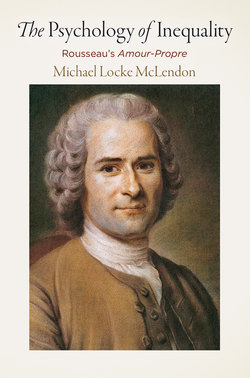The Psychology of Inequality

Реклама. ООО «ЛитРес», ИНН: 7719571260.
Оглавление
Michael Locke McLendon. The Psychology of Inequality
Отрывок из книги
The Psychology of Inequality
Rousseau’s Amour-Propre
.....
It was not hypocrisy that did the knights in, however. The anarchic political system could not last forever. Monarchical families emerged, as knights engaged in zero-sum competitions for land that increasingly concentrated power in a few hands until one family claimed victory and became the ruling family of the nation. Kings would slowly establish absolute power in England, France, and the Hapsburg territories. These structural changes led to the demise of the knightly aristocracy, as their abilities on the battlefield were not only unnecessary but also an unambiguous threat to these new absolutist kings. Warrior aristocrats simply could not be tolerated. At the same time, the new monarchs required capable administrators to govern their vast territories. Accordingly, universities became much more important, as they churned out a new socioeconomic class of lawyers and specialists capable of filling the monarchical need for rational administration. This new class of trained administrators was joined by a class of financiers and bankers, who learned to make money in the emerging commercial economy, and eventually a class of intellectuals, who taught in the universities and populated Europe’s urban centers. Combined, these new classes successfully challenged the old landed knightly nobility for social preeminence. Unsurprisingly, this struggle did not resolve itself quickly. The decline of the old knights was a slow process, as many could make money from their lands and remain powerful in the new age. Although they were, as Elias notes, a “functionless” social class and no longer had a claim to being best, they did not quietly disappear.71 Still, they slowly lost ground to the new administrative and commercial classes and by the beginning of the seventeenth century could no longer be considered the dominant social class.
For a time, the monarchs greatly benefited from this aristocratic turmoil. The two groups that posed greatest threats to their sovereignty were consumed with one another. As the new middle-rank lawyers, businessmen, and administrators increasingly gained the upper hand in their struggles against the old knightly aristocracy, however, the monarchs realized they could not afford to let these upstart classes vanquish the landed nobility. They surmised that a victorious middle rank would set its sights on political power next and try to supplant monarchy itself. So, they made every effort to string along class warfare as long as possible. To that end, the kings tipped the scales in favor of the old knightly aristocracy by awarding it tax exemptions, taxing powers, positions at court, and other important privileges in the hope of creating a roughly equal balance of power between the old knights and the new lawyers and bankers. The hope was that if the old knights could not compete monetarily with the upper strata of the upstart middle classes, at least they could claim to be the true aristocratic class.
.....